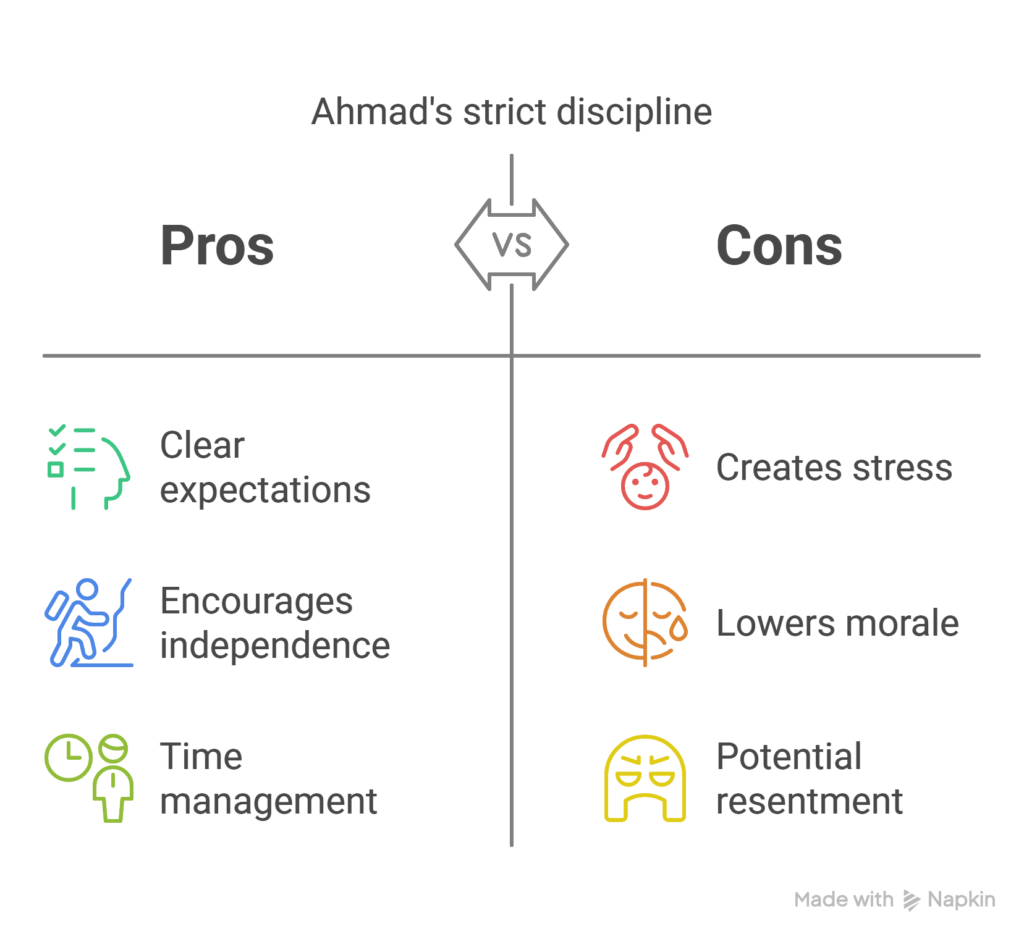It was supposed to be a fresh start.
As Officer Nizam stepped out of the elevator on the 15th floor of the government office building, he took a deep breath. He was about to begin his first day in a completely new department. After years of hard work, he had finally been promoted to Gred 48. But this new role? It was uncharted territory.

The air in the department felt thick with tension as he walked down the dimly lit corridor. The sound of muffled voices from behind closed doors made him uneasy. Something was wrong, but he couldn’t quite put his finger on it. As he opened the door to his new office, he noticed a few documents scattered on the desk, along with a post-it note: Good luck. You’ll need it.
His heart sank. The words felt more like a warning than a welcome.
Nizam had heard rumors about this department—the whispers of endless problems, backstabbing, and a toxic culture—but he had dismissed them. “Surely, things can’t be that bad,” he thought to himself. Yet as the day unfolded, he began to realize how deep the dysfunction ran.

he First Encounter
“Good morning, sir,” a soft voice interrupted Nizam’s thoughts. It was Sarah, his new assistant. She looked nervous, her eyes avoiding his gaze.”Morning, Sarah. Could you brief me on what’s happening around here?” Nizam asked, trying to sound upbeat.
She hesitated, then replied, “Well, sir… I’m not sure where to start. You’ll see. It’s… different here.”Before Nizam could ask what she meant, the door burst open. “Nizam!” It was the head of the department, Mr. Ahmad. His face was stern, his tone sharp. “Glad you’re here. But there’s no time to settle in. We’re way behind on several projects, and I need results, fast.”
“But, sir—” Nizam started, but Ahmad cut him off.
“I don’t want to hear excuses. You’re Gred 48 now. Figure it out. Meeting in 10 minutes.” Ahmad turned on his heel and stormed out.Nizam glanced at Sarah, who was staring at her feet. “Welcome to the department,” she whispered.

The First Meeting
The meeting room was filled with silence. As Nizam entered, the tension in the room hit him like a wall. The team was seated around the table, eyes cast down, hands fidgeting. Ahmad stood at the front, clearly frustrated.
“So,” Ahmad began, “What’s the update on the report? We’re weeks behind, and I’m not hearing any solutions!”
The room remained silent. Nizam could feel the discomfort in the air. Finally, he decided to speak. “If I may, perhaps we could identify the main bottlenecks and assign specific tasks to address them?”
But no one responded. The other officers remained silent, avoiding eye contact. After a painful pause, Ahmad’s eyes locked onto Nizam.
“Looks like you’re volunteering, Nizam,” Ahmad said, his voice dripping with sarcasm. “You can take charge of this. I expect results by the end of the week.”

Nizam swallowed hard. “Of course, sir.”
As the meeting ended, the officers filed out without saying a word. Nizam caught sight of one of his subordinates, Hafiz, shaking his head as he left. It was clear this was not going to be easy.
Climbing the Mountain
That evening, Nizam stayed late, poring over files, trying to make sense of the mess that had been dumped on him. He felt the weight of the task crushing his spirit. He glanced at the clock—it was already 9 PM. The office was eerily quiet now, save for the hum of the air conditioning.

Suddenly, there was a knock at the door. Sarah stood there, her face anxious. “Sir, do you need help?”
Nizam sighed. “I don’t even know where to start, Sarah. It’s like no one here wants to do their job.”
Sarah shifted uneasily. “It’s not that they don’t want to, sir. It’s just… they’ve been beaten down. This department… it’s different. People don’t talk because they know nothing changes. And if they suggest something, they’ll be left to handle it all by themselves. Everyone’s scared of getting blamed.”
Her words stung. Was this really the culture here? How could he lead a team like this?
Nizam leaned back in his chair, closing his eyes. “But why? Why does it have to be this way?”
Sarah looked at him with sad eyes. “Because, sir, it’s easier to survive by doing nothing than by trying and failing. That’s what people have learned here.”

The Breaking Point
Days turned into weeks, and Nizam’s optimism began to wear thin. Every meeting was the same—silent, unproductive. The work kept piling up, and his team grew more distant. The pressure from Ahmad was relentless. “I need that report now, Nizam. What’s taking so long?”
But no matter how hard Nizam tried, his team was disengaged, indifferent. Hafiz, his most senior officer, was especially difficult. He rarely showed up on time, and when he did, his attitude was dismissive.
One afternoon, after yet another frustrating meeting, Nizam confronted Hafiz. “What’s going on, Hafiz? You’ve barely contributed, and the department is falling apart. I need your help.”
Hafiz looked at him with weary eyes. “Help, sir? What’s the point? The moment I say something, I’ll get all the work dumped on me. And when things go wrong—because they will—I’ll be the one who gets blamed. That’s how it works here.”
Nizam felt a lump in his throat. He wanted to argue, to say things could be different. But could they? The system was broken, and he was beginning to feel like he was breaking along with it.
A Glimmer of Hope
One evening, as Nizam was about to leave, he heard a knock on his door. It was Sarah again. “Sir, there’s something you should see,” she said, holding up a folder.
Nizam opened the folder, flipping through the pages. It was a draft of the missing report they had been struggling to complete.
“Who worked on this?” Nizam asked, surprised.
“Hafiz, sir. He stayed late last night to finish it.”
Nizam was stunned. After weeks of apathy, Hafiz had taken it upon himself to complete the report. “Why didn’t he say anything?”
Sarah smiled softly. “He didn’t want the attention. He just wanted to help, quietly.”

The Dilemma
Nizam sat alone in his office late that night, staring at the report on his desk. Hafiz had stepped up, but he did it in secret, away from the blame and the backstabbing that plagued the department. Nizam felt a swell of hope, but it was quickly followed by uncertainty.
The department was still broken. The silos, the lack of communication, the endless finger-pointing—it was all still there. One report couldn’t change that. Nizam knew that for things to truly improve, he had to take action. But what action?
Should he confront Ahmad and demand structural changes to the department? That could be risky. Ahmad was not a man who liked to be challenged, and Nizam wasn’t sure how much support he would get from his team. Speaking out could backfire, leaving him isolated.

Or should he try to lead quietly, like Hafiz? Slowly building trust with his team, encouraging them to take ownership without drawing too much attention. It would take time, and the pressure from Ahmad wouldn’t ease. But maybe, just maybe, it could spark a slow transformation.
Nizam leaned back in his chair, closing his eyes. He was standing at a crossroads. One path was bold but dangerous; the other was slow and uncertain. As the clock ticked on, he knew he had to decide. But what would you do?
